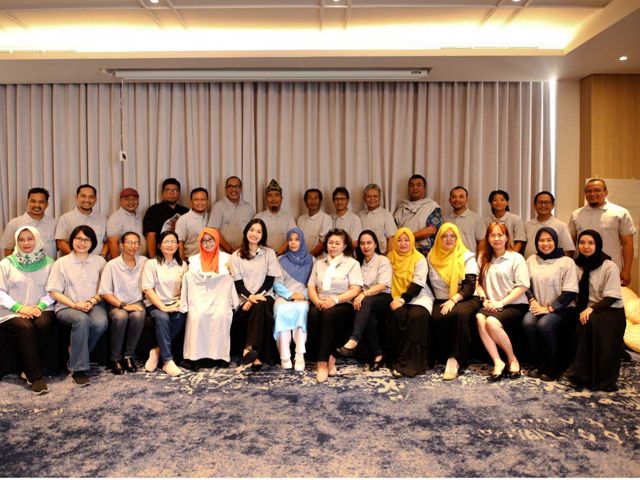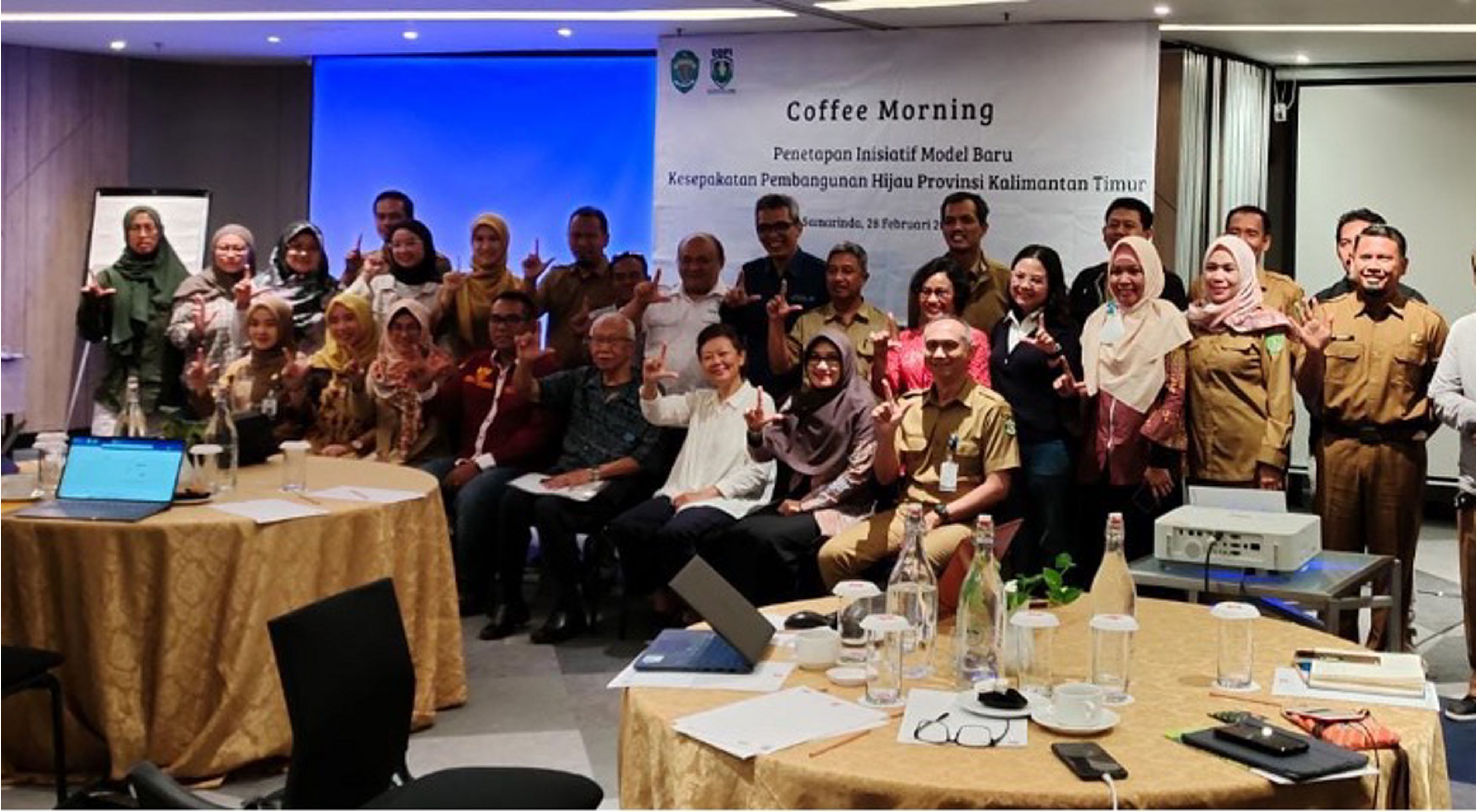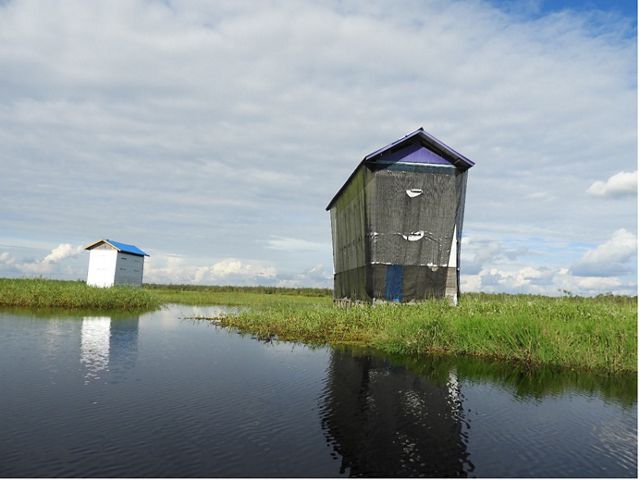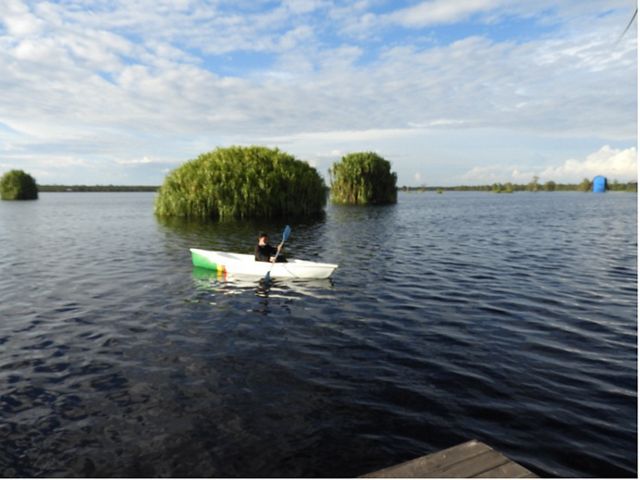Media Contacts
-
Maria Adityasari
Communication Specialist YKAN
Yayasan Konservasi Alam Nusantara
Email: maria.adityasari@ykan.or.id
To encourage the acceleration of green development, the Provincial Government of East Kalimantan continues developing strategies and innovations to manage natural resources sustainably.
One example is the Green Development Agreement (GDA) or the Green Growth Compact (GGC). GGC is a collaborative action involving various parties, including the government, private sector, non-governmental organizations, universities, indigenous peoples, and civil society, working together to achieve a "Green East Kalimantan."
Implementing the GDA in this province is coordinated through the East Kalimantan Regional Council on Climate Change (DDPI). Supporting the council is the Nusantara Nature Conservation Foundation (YKAN), which has developed dozens of model initiatives for site, landscape, and jurisdiction-based natural resource management.

From its declaration in 2016 through 2022, GGC developed 11 green development model initiatives. These include the Berau Forest Carbon Program, Forest Carbon Partnership Facility-Carbon Fund, Sustainable Plantation, Management of Wehea-Kelay Essential Ecosystem Areas, Social Forestry, Strengthening Forest Management Units, Climate Village Program (ProKlim), Mahakam Delta Area Management Partnership, Implementation of akSi Inspiratif warGA untuk Perubahan (SIGAP), Control of Land and Garden Fires, Adaptation and Mitigation of Climate Change in Balikpapan City.
Two new model initiatives were approved in 2023 related to managing wetland ecosystems. The new activities are in the Mesang Lake area near Muara Siran Village in Kutai Kartanegara Regency and at Lake Kenohan Suwi in the Muara Ancalong sub-district of East Kutai Regency.
According to the Secretary of the East Kalimantan Regional Council on Climate Change, Professor Soeyitno Soedirman, "Studies indicate the Mesang-Suwi wetland ecosystem and the Muara Siran peatland ecosystem add to the 11 model initiatives formed under the Green Development Agreement." Professor Soedirman was at a formal coffee morning meeting organized to discuss the GDA's progress.

A wetland is an area of land regularly saturated with water, seasonally or permanently. In Indonesia, it qualifies as a wetland ecosystem if it meets five key criteria set by the Ministry of Environment and Forestry. Firstly, the wetland harbors diverse ecosystems and distinctive plant life. Secondly, it serves as a habitat for water birds and migratory species. Thirdly, it provides refuge for endangered, endemic, and protected animals. Fourthly, it functions as a reservoir for clean water in the surrounding area. Lastly, it encompasses economic, scientific, spiritual, and cultural values.
There are many types of wetlands. Swamps, riverbanks, and peat swamp forests are some of the most widely known. Peat-based ecosystems are crucial to the natural environment, maintaining water systems, storing carbon and protecting biodiversity. A well-maintained peat lake can contribute to the economies of local communities while maintaining peat's environmental role.
The wetland in Muara Siran is a peat ecosystem. Since 2012, it has been managed by the Human Biosphere Foundation. The Foundation has rehabilitated the peat through various economic improvements, such as cultivating swiftlet nests valued for culinary and medicinal use. Cultivating the nests fosters community interest in the environment. If the community's peat lake is damaged, so is the habitat the swiftlet (Collocalia esculenta) needs to build its nests.
According to the Chair of the Muara Siran Natural Resource Management Institute, Abdul Agus Nur, Muara Siran's "residents have committed to protecting the forest. If the forest is damaged, then the welfare of the residents will also suffer from fewer swiftlets building nests."
Abdul hopes Muara Siran's model initiative will align the village's potential with the government's upcoming programs. There are also plans for some regional organizations to get involved in village development, such as ecotourism and fisheries.
As for the wetlands in Lake Menegara and Lake Kenohan Suwi, the Ulin Foundation and the Indonesian Equator Conservation Foundation (Yashiwa) are implementing the initiatives. The two organizations collaborate in managing a vital ecosystem area in Mesang-Suwi, a prime habitat for the freshwater Crocodylus siamensis, locally known as the "black badass crocodile".
The Minister of Environment and Forestry has designated the crocodile as a protected species. In addition to providing a habitat for the black badass, the 13,000-hectare wetlands are home to away cats, proboscis monkeys, gharial crocodiles (Tomistoma schlegelii), tong-tong herons (Leptoptilos javanicus), and belida fish (Chitala ornata).
The Mesang-Suwi wetlands are recognized internationally for their rare species and unique ecosystems comprising swamps and riparian features. According to Yashiwa Chair Monica Kusneti, failing to manage these wetlands will attract negative global attention. She noted that many fishermen still use environmentally unfriendly electric stun devices, and oil palm planters clear land in riparian areas. "We still need a lot of support to encourage parties to manage this area sustainably," said Monica.

Head of the DDPI Mitigation Working Group, Doctor Fajar Pambudi, said the two ecosystems had to pass seven assessments before being awarded development model status.
These criteria encompass adhering to GGC objectives, engaging with diverse stakeholders, working with supportive institutions, maintaining equilibrium between economic and ecological goals, possessing financial viability, demonstrating potential for replication and sustainability, and potentially achieving tangible outcomes within three years.
YKAN Green Development Senior Manager Alfan Subekti said that since the Green East Kalimantan Program was declared in 2010, the success of these two approved green development model initiatives was further evidence that committing to green development had become more than just mouthing a slogan about turning East Kalimantan green. "Stakeholders in East Kalimantan are increasingly eager to take collaborative actions in site-based natural resource management," Alfan said approvingly, noting that greater stakeholder participation is important, as conservation work is not a silent job.
Yayasan Konservasi Alam Nusantara (YKAN) is a scientific-based non-profit organization that has been present in Indonesia since 2014. With the mission of protecting lands and waters as life support systems, we provide innovative solutions to realize the harmony of nature and humans through effective natural resource management, prioritizing a non-confrontational approach, and building a network of partnerships with all stakeholders for a sustainable Indonesia. For more information, visit ykan.or.id.




